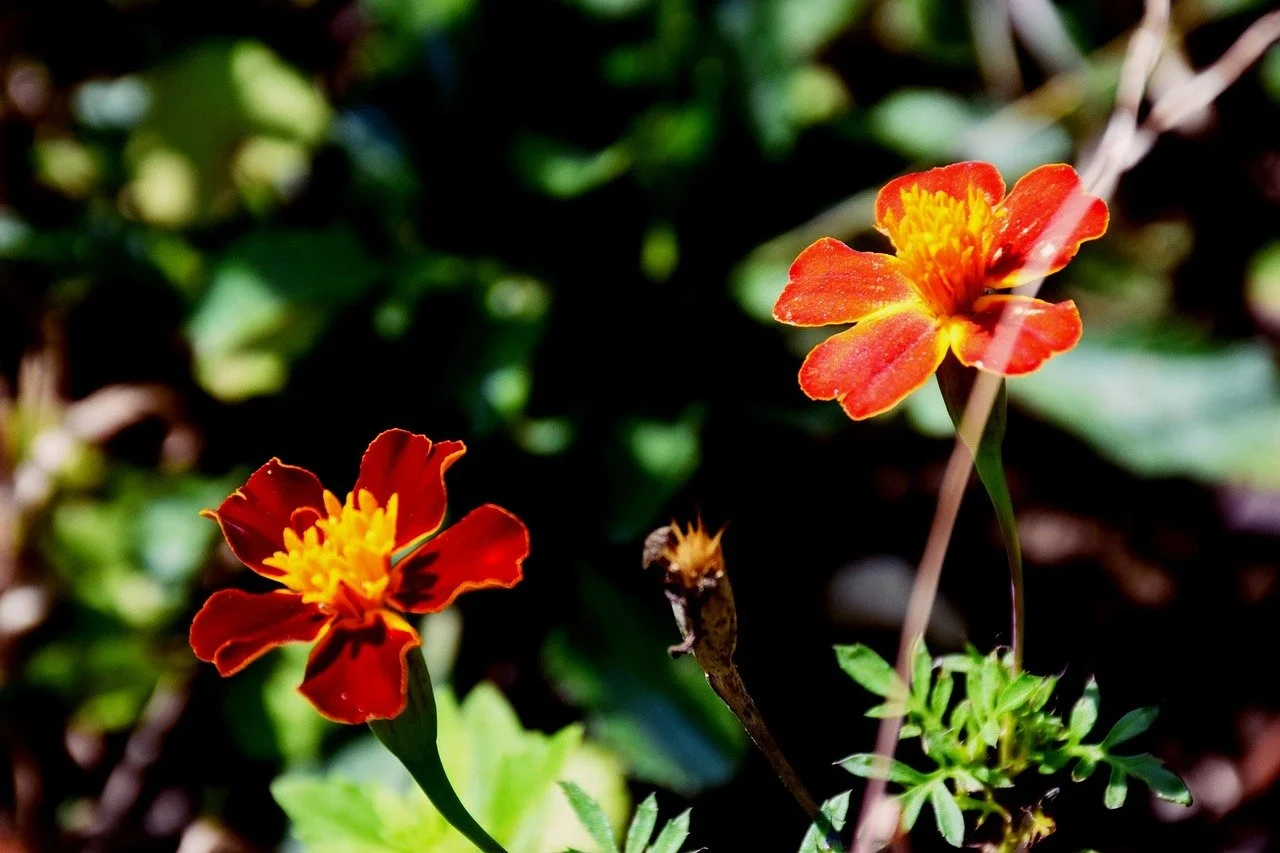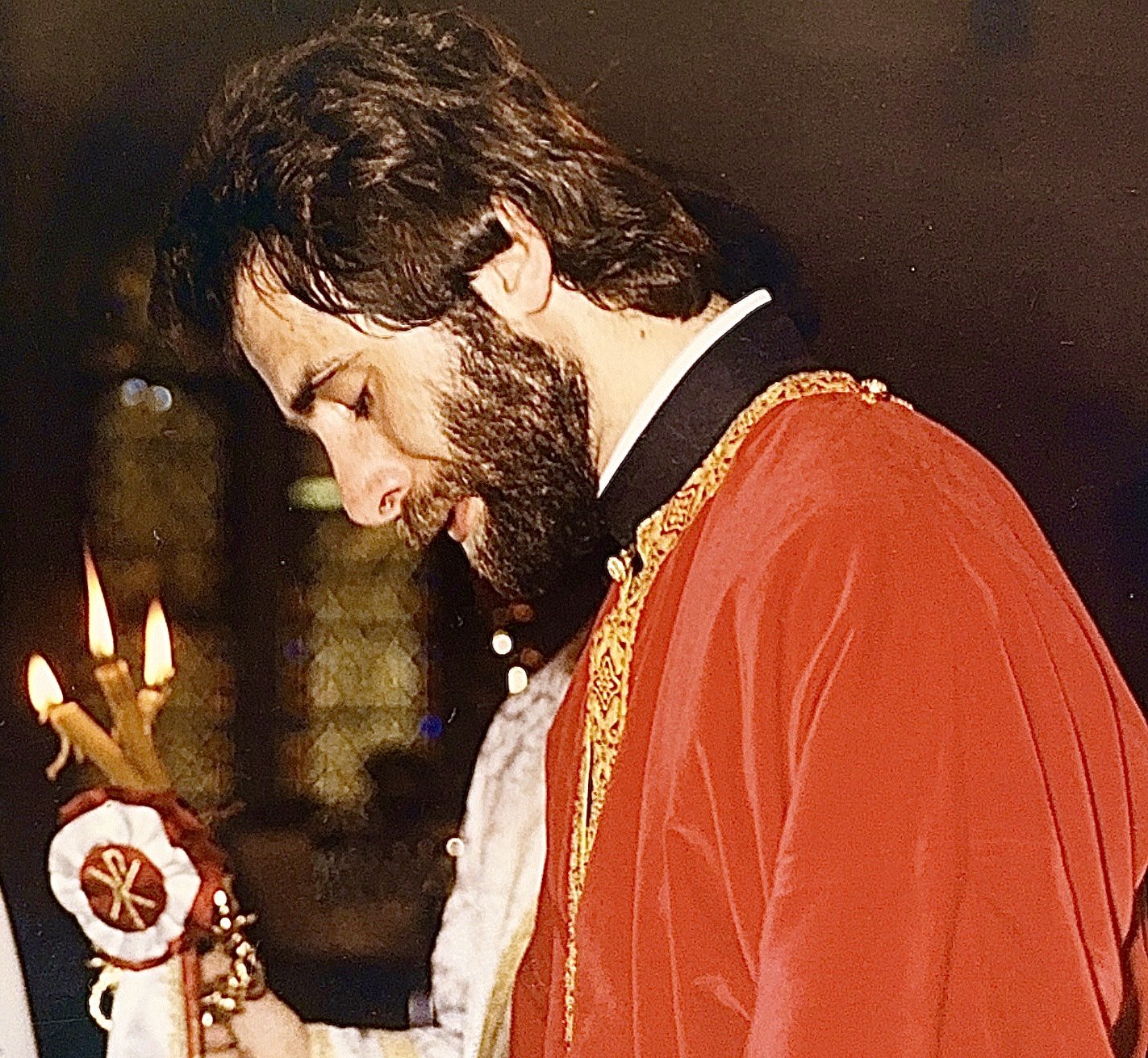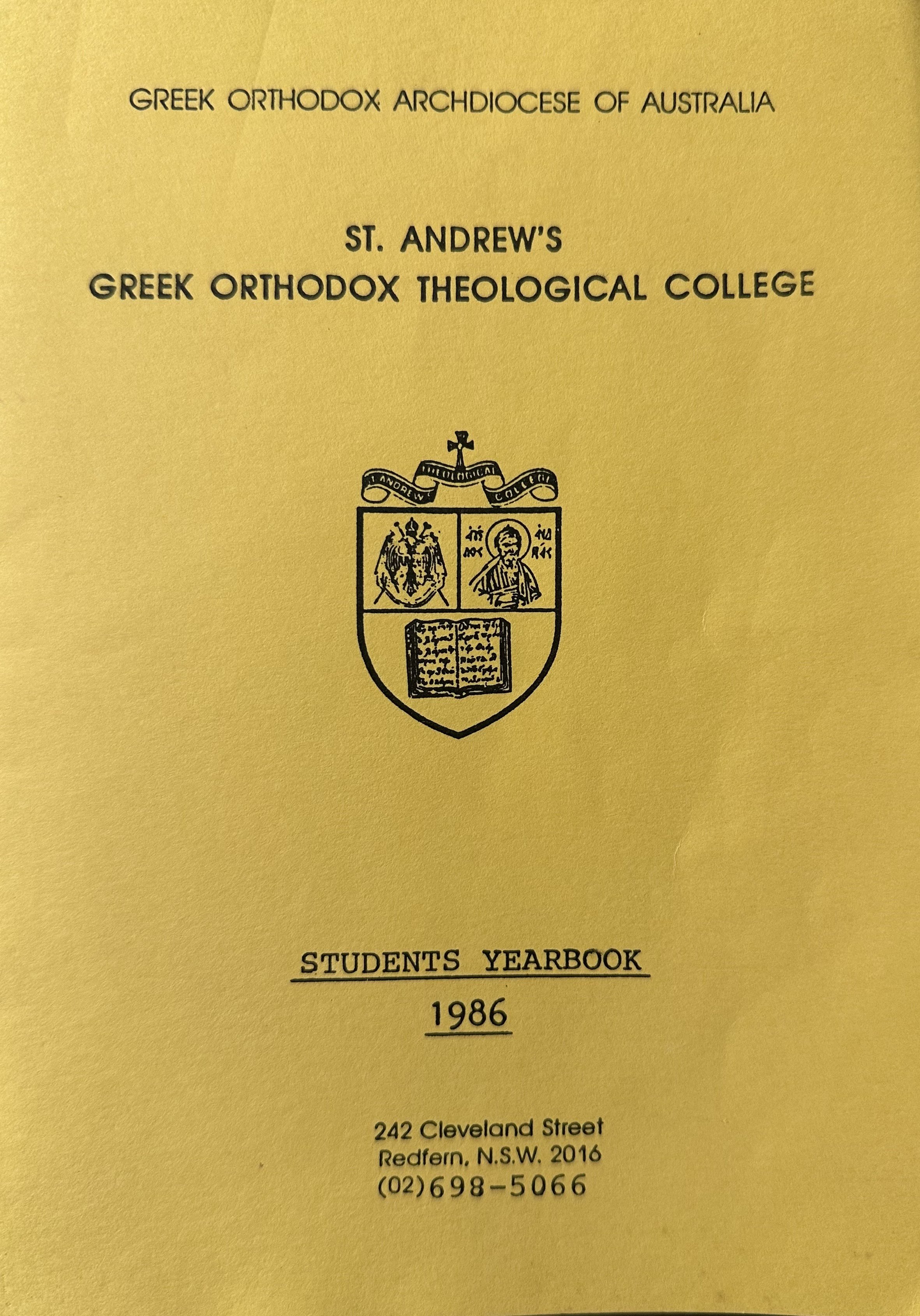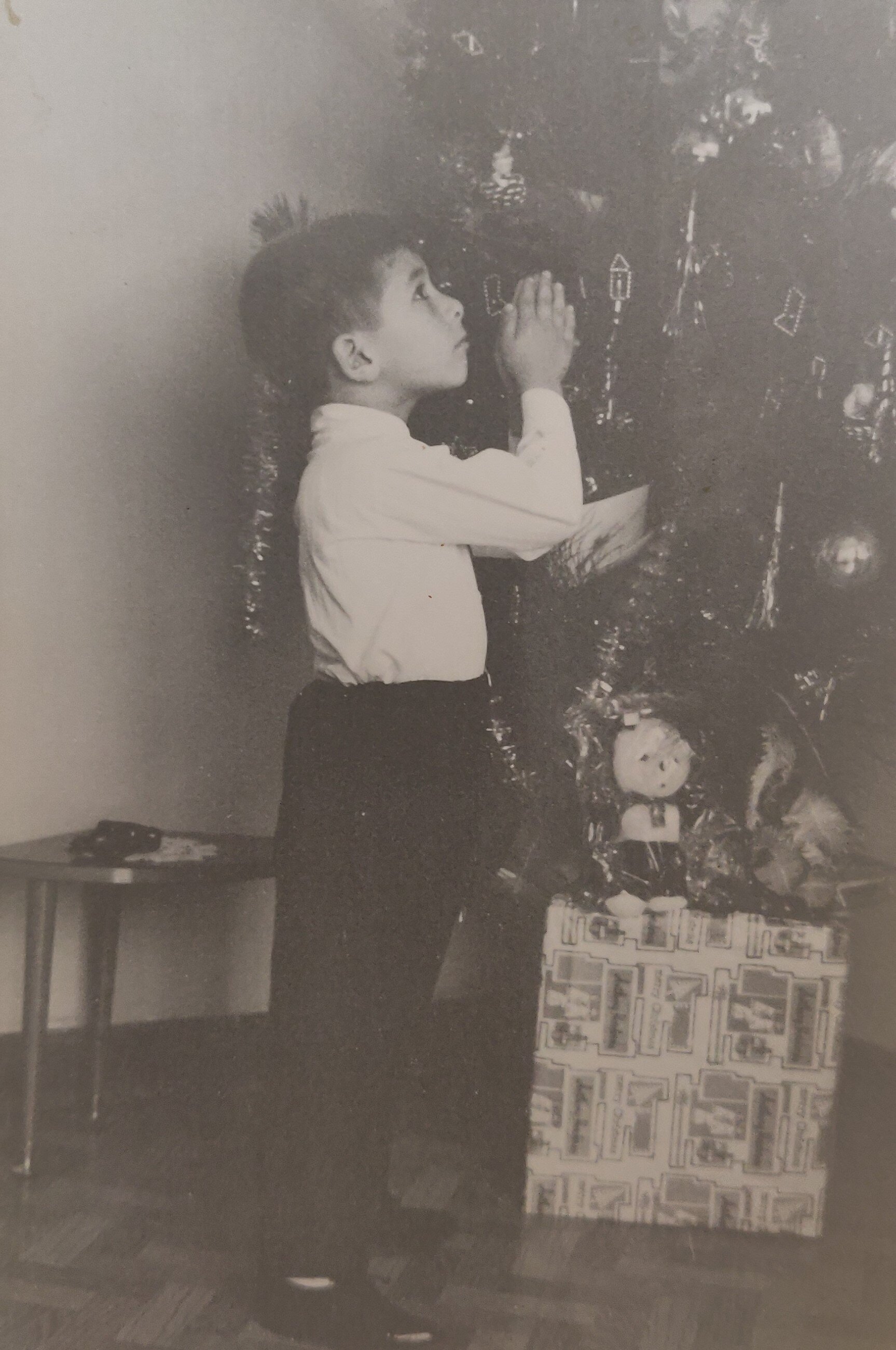On the Overwhelming Power of Forgiveness
/Do not judge, and you will not be judged. Do not condemn, and you will not be condemned. Forgive, and you will be forgiven. (Lk. 6:37)
He who is devoid of the power to forgive is devoid of the power to love. There is some good in the worst of us and some evil in the best of us. When we discover this, we are less prone to hate our enemies. (Martin Luther King, Jr.)
Absolutely nothing will help us if we are not lenient toward the weaknesses of men and forgive them. For how can we hope that God will forgive us if we do not forgive others? (St. Nikolai Velimirovich)
When we are able to see the suffering in him or her, and see that that person is a victim of his own suffering, then it's easy to forgive. Recognize the suffering. Understand the suffering. And by having the desire to help that person to suffer less, you will be able to forgive very easily. (Thich Nhat Hanh)
To forgive, to truly forgive, to wipe the slate completely clean, is beyond the capacity of most of us, if only because we are creatures made of memory. From this arises an old, oft-repeated truth: I can forgive, but I cannot forget. And yet, we do surely try. On those occasions when we might succeed, there is a joy that settles upon the heart, a peacefulness, something not easily described. Call it a lightness of being, or even an acceptance of the foibles of the human condition to which we are all subject. When I look back on my own life, I find that some of my deepest joys and my most enduring hurts have to do, above all, with the asking or the giving of forgiveness. We often read that asking for forgiveness is harder than offering it. I have found, however, that both of these life-changing charisms are equal in measure, though each demands a different kind of humbleness.
To ask the other for forgiveness is harder in the first instance because it will normally mean that we must make the first move, and so we put ourselves in an extremely vulnerable position. If this action of opening our heart to another is rejected it can deliver a mental pain to rival, or in fact be worse, than a suffering we might feel in the flesh. Particularly when the rejection comes from someone we have loved. And often in the cruellest form of all: silence. Such an experience can unleash a devastating range of emotions, from a sense of worthlessness to having one’s integrity and intentions called into question. How, then, does one respond to such a brutal rejection? The pain if it be possible is compounded, if we should happen to hold a theology that will see in the other the very Image and Likeness of God.
There is, needless to say, no simple answer but only what our own hearts reveal to us. One thing we must not do is allow another, whose heart does not wish to embrace ours, to extinguish our spirit. Our souls are far greater and infinitely richer in their potential than any hard rejection we might face. To dwell on this truth alone is to make room for divine providence to take its course. At the same time, we can never know what tomorrow may bring, even the joyous possibility of reconciliation. Compassion never ceases to amaze, for even the greatest of enemies have, in many instances, found their way back to each other. What has brought me comfort is carrying the other’s name into prayer. Admittedly, after a strong struggle, that name grows sweet, until the pain itself is almost forgotten. There is a mistake many of us have made, and it is a compulsion that given our angst is not difficult to fall into. We try to get the other to bend their compassion towards us by hammering repeatedly on their door when they have made it clear they have shut us out. By continuing to ‘knock’ we not only do an additional harm to ourselves but also to the other whose time has not yet come. It pulls us further into our own despair, and it hardens the heart of the other. Let us make our peace with a sincere and genuine spirit and then turn towards the souls who love us and see in us not only our heaven-sent gifts, but also that which is common to us all, our brokenness and need for acceptance.
Now we come, let us say, to the flip side of the coin. And for a large number, this has proven the more difficult, if only because once we forgive, the memory of the injustice committed against us remains. Once more, in such matters, we can only speak from experience and learn best we can from the wisdom writings of those who have gone before us. To forgive demands the giving of the benefit of the doubt for a trust has normally been broken, but also the practice of other-compassion and an outpouring of love. This forgiveness is rarely easy when we are young. Early in life, lacking a broader existential perspective, we tend to see the world in stark polarities. We have not yet come to a nuanced understanding of the complexities and contradictions of the human condition. Concepts such as loyalty and betrayal, yes, undeniably important, assume almost mythical proportions when life is viewed through a murky lens.
As we grow into our middle and later seasons of life, a precious awakening occurs, like the shock at suddenly seeing the iridescent shine on a drake’s head or the exhilaration of being introduced to Bruckner’s symphonies for the first time. We come to the self-realisation that we, too, have missed the mark. Jung would speak in terms of “individuation” and of coming face-to-face with our shadow. We have all sinned and fallen short of the glory of God. Looking at the accusers who brought the woman caught in adultery before Him, the God-Man responds: “Let any one of you who is without sin be the first to throw a stone at her” (Jn. 8:7). And who amongst us would claim to have never been a prodigal or has not considered pulling the arm back before casting the stone? Not only in biblical but also in those inspirational Levinasian terms, the “Other” is my salvation and not my hell. We are all of us, boats in the ocean, with rust and brine on the waterline.
Put in more earthly language, none of us is perfect. Though we might sometimes dare to convince ourselves that we are at least a little more perfect than the other. And who has not? So, then, forgiving the other for misdemeanours that we ourselves could be guilty of, is not as impossible as it once could have been. In this way, too, bringing the other to prayer, and allowing time to do its work, can become a great liberation for the soul. This is not to idealise forgiveness nor to trivialise the hurt that has been done; to forgive a grievous wrong demands an act of moral courage. Yet, in that one act alone, power is paradoxically restored to the one who forgives. This is the charism of the transformative power of love, for it endures, it does not fracture nor can it be broken, like a young oak tree that grows to become “windproof” as it matures. By far there are more gentle and compassionate people in the world than those who would will us harm. Let us allow for the possibility that we are acting in good faith.
Forgiveness is not a question of prescribed rubrics, in either its asking or its giving. It remains a profoundly personal act. Nor is it always a decision of a single moment. In any case, it cannot be hurried, especially when deep trauma is involved. Boundaries may need to be initially set. There is no “one size fits all” formula, any more than there is a single eye colour. What remains essential, if forgiveness is what we seek, is prayer, patience, and the belief that the potential for the redirection of another soul is rarely absolutely lost. Over time, forgiveness draws us further into those tremendous realms of self-sacrificial love revealed by Christ on the Cross, who forgives even as He is being executed (Lk. 23:34). From this mystical place, the thinnest divide between divine and human, the greatest graces and mysteries will flow.
Finally, if I may add a personal reflection drawn from my own experience and from listening to others during my earlier vocation as a spiritual advisor. Asking for forgiveness liberates the soul from its guilt and resentment, and allows for the heart to be loved again. As much as we need creativity to survive, we also need to practise forgiveness so that we may live our humanness to its fullest expression. And for those who are able to forgive, this one act of grace alone, renouncing the claim that they once held over the other, can reverberate across generations. It can even save a brother or sister from death, for we know there are many ways in which one can die. It will foster beautiful friendships, or completely destroy them should we hold on to the bitterness. Rocks can crack bit by bit to then fall apart under the stress weathering of the sun. And such is the power granted to us from our Maker (or, indeed from the Universe) that with a single word—yes— (or, no) we can alter the direction of the future. The temptation is to forgive yet still deny access to those we have forgiven. For those of us who are members of the community of believers, we are asked to discern what it means that God Himself remains forever open to the cry of our lament and requests for mercy.





